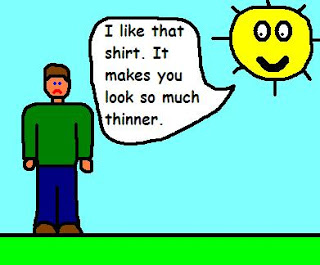How Do You Take Your Praise?
 Throughout the course of my 25-year-career so far, which has included great jobs with industrial companies, big and small PR agencies, a very large not-for-profit trade association and now my own PR/Marketing company, I’ve noticed something peculiar. Now, while there are always a few exceptions, in general, I think people don’t take praise very well and I believe it’s because praise makes us feel just a little bit uncomfortable. Let’s look at personal compliments. If you compliment most people, odds are very good that they will try to talk you out of it. nike roshe run “Nice dress,” you say. “This old thing! It’s really nothing,” they retort. “Cool tie,” you remark. “Yeah, I hate this color. My wife picked it out for me,” they share (and a tad too much) Try it for yourself today. adidas stan smith Give out some compliments and see what types of arguments you get back. I believe that the only correct response to a compliment are these two words placed nice and close together. “Thank,” quickly followed by “you.” …And then silence. Glorious silence! That is a compliment exchange done right. But our praise exchanges rarely go that way and the argument about them creates a little bit of tension in situations that really deserved better. Now, let’s move to praise of our company, client or even our individual work on a project. A client was recently giving me a compliment on job well done, and for some reason that I still can’t explain, I kept talking about what I was going to do next instead of shutting up and enjoying the moment of triumph. Hmmmmmm I have a great self-image, strong confidence and I actually do usually say “thank you” and stop talking when people compliment me, BUT…here in this moment I was really uncomfortable with the praise and wanted to move on quickly. asics tiger I wonder why? Why is it so hard for us to accept praise and not deflect or deny it? Do brands have a tough time with this too? Sure they do. Why? Because most of them are run by oxygen-breathing humans. How can people and brands become more comfortable with the praise that experts say are the driving force behind why we do anything anyway? Or maybe it’s a mood thing and the resulting behavior could change depending on the subject’s mood? Some days, you might take that compliment, others you might slam it back faster than Rafael Nadal at Wimbledon. asics gel kayano In that case, how would companies and brands create some structure and rules about their praise-driven responses to offer more predictability? To be a great communicator, you have to first understand the human mind and these weird little things we do. In other words, there are no great communicators…only students. nike air max 90 femme But hey, that really is a nice dress.
Throughout the course of my 25-year-career so far, which has included great jobs with industrial companies, big and small PR agencies, a very large not-for-profit trade association and now my own PR/Marketing company, I’ve noticed something peculiar. Now, while there are always a few exceptions, in general, I think people don’t take praise very well and I believe it’s because praise makes us feel just a little bit uncomfortable. Let’s look at personal compliments. If you compliment most people, odds are very good that they will try to talk you out of it. nike roshe run “Nice dress,” you say. “This old thing! It’s really nothing,” they retort. “Cool tie,” you remark. “Yeah, I hate this color. My wife picked it out for me,” they share (and a tad too much) Try it for yourself today. adidas stan smith Give out some compliments and see what types of arguments you get back. I believe that the only correct response to a compliment are these two words placed nice and close together. “Thank,” quickly followed by “you.” …And then silence. Glorious silence! That is a compliment exchange done right. But our praise exchanges rarely go that way and the argument about them creates a little bit of tension in situations that really deserved better. Now, let’s move to praise of our company, client or even our individual work on a project. A client was recently giving me a compliment on job well done, and for some reason that I still can’t explain, I kept talking about what I was going to do next instead of shutting up and enjoying the moment of triumph. Hmmmmmm I have a great self-image, strong confidence and I actually do usually say “thank you” and stop talking when people compliment me, BUT…here in this moment I was really uncomfortable with the praise and wanted to move on quickly. asics tiger I wonder why? Why is it so hard for us to accept praise and not deflect or deny it? Do brands have a tough time with this too? Sure they do. Why? Because most of them are run by oxygen-breathing humans. How can people and brands become more comfortable with the praise that experts say are the driving force behind why we do anything anyway? Or maybe it’s a mood thing and the resulting behavior could change depending on the subject’s mood? Some days, you might take that compliment, others you might slam it back faster than Rafael Nadal at Wimbledon. asics gel kayano In that case, how would companies and brands create some structure and rules about their praise-driven responses to offer more predictability? To be a great communicator, you have to first understand the human mind and these weird little things we do. In other words, there are no great communicators…only students. nike air max 90 femme But hey, that really is a nice dress.

